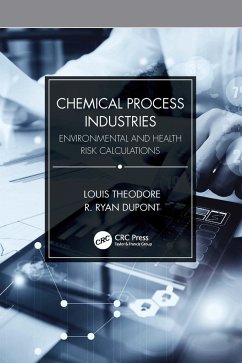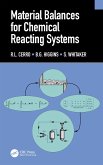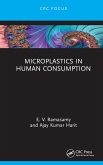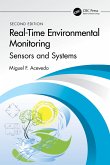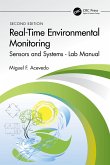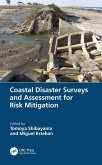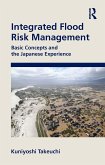Louis Theodore (USA TheodoreTutorials), R. Ryan Dupont (Utah State University, Logan, USA)
Chemical Process Industries
Environmental and Health Risk Calculations
Louis Theodore (USA TheodoreTutorials), R. Ryan Dupont (Utah State University, Logan, USA)
Chemical Process Industries
Environmental and Health Risk Calculations
- Gebundenes Buch
- Merkliste
- Auf die Merkliste
- Bewerten Bewerten
- Teilen
- Produkt teilen
- Produkterinnerung
- Produkterinnerung
This book can be used as a college text designed to provide new engineers and scientists some comprehension of the industries into which they may enter. It also serves as a useful reference for practitioners which will help them better understand the health risk aspects of various industrial operations.
Andere Kunden interessierten sich auch für
![Material Balances for Chemical Reacting Systems Material Balances for Chemical Reacting Systems]() R.L. CerroMaterial Balances for Chemical Reacting Systems96,99 €
R.L. CerroMaterial Balances for Chemical Reacting Systems96,99 €![Microplastics in Human Consumption Microplastics in Human Consumption]() E. V. Ramasamy (India. Mahatma Gandhi University)Microplastics in Human Consumption68,99 €
E. V. Ramasamy (India. Mahatma Gandhi University)Microplastics in Human Consumption68,99 €![Real-Time Environmental Monitoring Real-Time Environmental Monitoring]() Miguel F. AcevedoReal-Time Environmental Monitoring105,99 €
Miguel F. AcevedoReal-Time Environmental Monitoring105,99 €![Real-Time Environmental Monitoring Real-Time Environmental Monitoring]() Miguel F. AcevedoReal-Time Environmental Monitoring53,99 €
Miguel F. AcevedoReal-Time Environmental Monitoring53,99 €![Translating Diverse Environmental Data Into Reliable Information Translating Diverse Environmental Data Into Reliable Information]() Daniel A. ValleroTranslating Diverse Environmental Data Into Reliable Information133,99 €
Daniel A. ValleroTranslating Diverse Environmental Data Into Reliable Information133,99 €![Coastal Disaster Surveys and Assessment for Risk Mitigation Coastal Disaster Surveys and Assessment for Risk Mitigation]() Coastal Disaster Surveys and Assessment for Risk Mitigation121,99 €
Coastal Disaster Surveys and Assessment for Risk Mitigation121,99 €![Integrated Flood Risk Management Integrated Flood Risk Management]() Kuniyoshi Takeuchi (Japan University of Yamanashi)Integrated Flood Risk Management110,99 €
Kuniyoshi Takeuchi (Japan University of Yamanashi)Integrated Flood Risk Management110,99 €-
-
-
This book can be used as a college text designed to provide new engineers and scientists some comprehension of the industries into which they may enter. It also serves as a useful reference for practitioners which will help them better understand the health risk aspects of various industrial operations.
Hinweis: Dieser Artikel kann nur an eine deutsche Lieferadresse ausgeliefert werden.
Hinweis: Dieser Artikel kann nur an eine deutsche Lieferadresse ausgeliefert werden.
Produktdetails
- Produktdetails
- Verlag: Taylor & Francis Ltd
- Seitenzahl: 398
- Erscheinungstermin: 30. Dezember 2022
- Englisch
- Abmessung: 163mm x 240mm x 29mm
- Gewicht: 738g
- ISBN-13: 9781032041858
- ISBN-10: 1032041854
- Artikelnr.: 65917522
- Herstellerkennzeichnung
- Libri GmbH
- Europaallee 1
- 36244 Bad Hersfeld
- gpsr@libri.de
- Verlag: Taylor & Francis Ltd
- Seitenzahl: 398
- Erscheinungstermin: 30. Dezember 2022
- Englisch
- Abmessung: 163mm x 240mm x 29mm
- Gewicht: 738g
- ISBN-13: 9781032041858
- ISBN-10: 1032041854
- Artikelnr.: 65917522
- Herstellerkennzeichnung
- Libri GmbH
- Europaallee 1
- 36244 Bad Hersfeld
- gpsr@libri.de
Dr. Louis Theodore, over the past 50 years, was a successful educator at Manhattan College (holding the rank of full professor of chemical engineering), graduate program director, researcher, professional innovator, and communicator in the engineering field. During this period, he was primarily responsible for his program achieving a no. 2 ranking by US News & World Report. He has authored over 100 text/reference books and over 100 technical papers. He currently serves as a part-time consultant to the US EPA and runs Theodore Tutorials. He is a member of Phi Lambda Upsilon, Sigma Xi, Tau Beta Pi, American Chemical Society, American Society of Engineering Education, Royal Hellenic Society, and a fellow of the International Air & Waste Management Association. Dr. Theodore is the recipient of the AWMA's prestigious Ripperton award that is "presented to an outstanding educator, who, through example, dedication, and innovation has so inspired students to achieve excellence in their professional endeavors." He was also the recipient of the ASEE's AT&T Foundation award for "excellence in the instruction of engineering students." Dr. R. Ryan Dupont has near 40 years of experience teaching and conducting applied and basic research in environmental engineering at the Utah Water Research Laboratory at Utah State University. His main research areas have addressed soil and groundwater bioremediation, stormwater management via green infrastructure, field remediation technology demonstration and treatment system performance verification, and water reuse technology performance and risks. He received a BS degree in Civil Engineering, and MS and PhD degrees in Environmental Health Engineering from the University of Kansas, Lawrence. Dr. Dupont has been a Full Professor of Civil and Environmental Engineering at USU since 1995, served as the Head of the Environmental Engineering Division for 10 years, was instrumental in establishing an Undergraduate Degree in Environmental Engineering at USU, and has been responsible for attracting more than $7 million in extramural funding through the Water Research Lab since joining the faculty in 1982. Dr. Dupont is a member of Sigma Xi, Tau Beta Pi, Chi Epsilon, the American Society of Civil Engineers, the American Society of Engineering Educators, the Water Environment Federation, the Solid Waste Association of North America, Engineers without Borders, and the Air and Waste Management Association. Dr. Dupont was recognized as an Outstanding Young Engineering Educator by the American Society of Engineering Education, and was a 2015 recipient of the Richard I. Stessel Waste Management Award, for "distinguished achievement as an educator in the field of waste management" from the Air and Waste Management Association.
Part 1: Introduction to Environmental and Health Risk 1.
Definitions/Glossary of Environmental and Health Risk Terms. 2.
Introduction to Environmental and Health Risk. 3. Environmental and Health
Risk Analysis. 4. Introduction to Probability and Statistics. 5.
Probability Distributions. Part 2: Chemical Process Industires 6.
Definitions/Glossary of Chemical ProcessTerms. 7. History. 8. Chemical
Process Equipment. 9. Chemical Processes: Fundamentals and Principles. 10.
Industry-Specific Processes. 11. Emergency Planning and Response. Part 3:
Health Risk Calculations for Specific Chemical Process Industries 12.
Inorganic Chemicals. 13. Organic Chemicals. 14. Petroleum Refining. 15.
Energy and Power. 16. Pharmaceuticals. 17. Food Products Industry. 18.
Nanotechnology. 19. Military and Terrorism. 20. Weather and Climate. 21.
Architecture and Urban Planning. 22. Environmental Considerations.
Definitions/Glossary of Environmental and Health Risk Terms. 2.
Introduction to Environmental and Health Risk. 3. Environmental and Health
Risk Analysis. 4. Introduction to Probability and Statistics. 5.
Probability Distributions. Part 2: Chemical Process Industires 6.
Definitions/Glossary of Chemical ProcessTerms. 7. History. 8. Chemical
Process Equipment. 9. Chemical Processes: Fundamentals and Principles. 10.
Industry-Specific Processes. 11. Emergency Planning and Response. Part 3:
Health Risk Calculations for Specific Chemical Process Industries 12.
Inorganic Chemicals. 13. Organic Chemicals. 14. Petroleum Refining. 15.
Energy and Power. 16. Pharmaceuticals. 17. Food Products Industry. 18.
Nanotechnology. 19. Military and Terrorism. 20. Weather and Climate. 21.
Architecture and Urban Planning. 22. Environmental Considerations.
Part 1: Introduction to Environmental and Health Risk 1.
Definitions/Glossary of Environmental and Health Risk Terms. 2.
Introduction to Environmental and Health Risk. 3. Environmental and Health
Risk Analysis. 4. Introduction to Probability and Statistics. 5.
Probability Distributions. Part 2: Chemical Process Industires 6.
Definitions/Glossary of Chemical ProcessTerms. 7. History. 8. Chemical
Process Equipment. 9. Chemical Processes: Fundamentals and Principles. 10.
Industry-Specific Processes. 11. Emergency Planning and Response. Part 3:
Health Risk Calculations for Specific Chemical Process Industries 12.
Inorganic Chemicals. 13. Organic Chemicals. 14. Petroleum Refining. 15.
Energy and Power. 16. Pharmaceuticals. 17. Food Products Industry. 18.
Nanotechnology. 19. Military and Terrorism. 20. Weather and Climate. 21.
Architecture and Urban Planning. 22. Environmental Considerations.
Definitions/Glossary of Environmental and Health Risk Terms. 2.
Introduction to Environmental and Health Risk. 3. Environmental and Health
Risk Analysis. 4. Introduction to Probability and Statistics. 5.
Probability Distributions. Part 2: Chemical Process Industires 6.
Definitions/Glossary of Chemical ProcessTerms. 7. History. 8. Chemical
Process Equipment. 9. Chemical Processes: Fundamentals and Principles. 10.
Industry-Specific Processes. 11. Emergency Planning and Response. Part 3:
Health Risk Calculations for Specific Chemical Process Industries 12.
Inorganic Chemicals. 13. Organic Chemicals. 14. Petroleum Refining. 15.
Energy and Power. 16. Pharmaceuticals. 17. Food Products Industry. 18.
Nanotechnology. 19. Military and Terrorism. 20. Weather and Climate. 21.
Architecture and Urban Planning. 22. Environmental Considerations.

